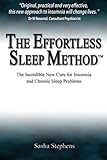Sleep, solid sleep without interruption, is nearly as vital to our existence and health as food, air and water. Sounds like a drastic statement, but according to several studies, it really isn't. There is proof that without sleep people can literally go mad - lose their minds and the ability to think critically and clearly. So how are we supposed to deal with lack of sleep?
Not only does our mind not function as well when we are working with little quality sleep, but many believe that lack of sleep and lack of quality of sleep may also diminish our immunities to sickness and disease. You may notice that you fall prey to flus and colds more often when you've experienced lack of sleep, and experts say this is a direct correlation to lack of sleep?
Immune function is a vital part of our well being. Our lymph system and other antibodies depend on sleep it seems, and are subsequently worn down when our bodies and minds are deprived of R & R.
Many factors play a part in interrupting this basic health need that must be met if we are to operate at our best possible capacity. Recuperation is another reason that we sleep. How many times have you felt rejuvenated and recharged by a good nights sleep when you've been going through a particularly stressful period, either physically or mentally.
We live in a fast paced, high stress society which can often make it difficult to slow down mentally and physically prior to bedtime. There are certain suggestions, that are helpful, if you are having a hard time getting to sleep at night and staying asleep for a full eight hours, or at least close, to that amount of time.
If you suffer from insomnia, try to ascertain the reason or reasons you are having problems with sleeping or staying asleep at night. Are you anxious, depressed, fearful or overly stressed? Or possibly, is there any physical discomfort or pain causing your inability to get comfortable enough to fall asleep? Do you snore and wake sometimes to catch your breath?
If your mind is overactive and you can not slow it down at bedtime, try some common sense approaches prior to sleep time that may help. Caffeinated beverages, pills or foods will certainly not only put sleep off, but also may interfere with normal sleep patterns throughout the night long after the consumption of it. Alcohol seems to have a sedative effect, but actually interferes with the sleep cycle.
Another good natural tip for gearing down an overactive mind is to avoid activities that stress or over stimulate the mind prior to bedtime. Try a warm glass of milk or a warm relaxing bath in the evening to slow down and to calm you.
Some products that are of an herbal nature and naturopathically used to treat insomnia can certainly provide a lot of relaxation as well as promotion of sleep-inducing chemicals which commence the process by which we fall and stay asleep. Some herbs known to be helpful for insomnia include chamomile, valerian and lavender. I'm sure you've heard of aromatherapy for stress relief, but aromatherapy can also be used to actually help ease anxieties and help us to sleep and keep on sleeping when we are having troubles getting enough rest.
Natural essense oils are often used for relaxation and preparation for snooze time, most notably jasmine oil which is actually popular not only as aromatherapy but it commonly used by many women as a perfume due to it's pleasant scent. Music may be a medicine much needed. Many times people report they can fall asleep more easily by using different types of music, say meditation music or classical music. Meditation and other relaxation techniques done in the evening can enhance your ability to get a good night's sleep.
Melatonin is a natural body chemical that is secreted when we sleep and are preparing to sleep. This hormone is activated when the lights go out, and is said to be pivotal to falling asleep and maintaining that critical sleep REM patter that many say without which we may lose our minds, literally.
If insomnia is problematic for you, consult with your physician to determine the cause. Also, try a combination of natural approaches and techniques to see if they assist you to fulfill your body's need for quality rest.
| BUY NOW | BUY NOW | BUY NOW |
| BUY NOW | BUY NOW |
| BUY NOW | BUY NOW | BUY NOW |












